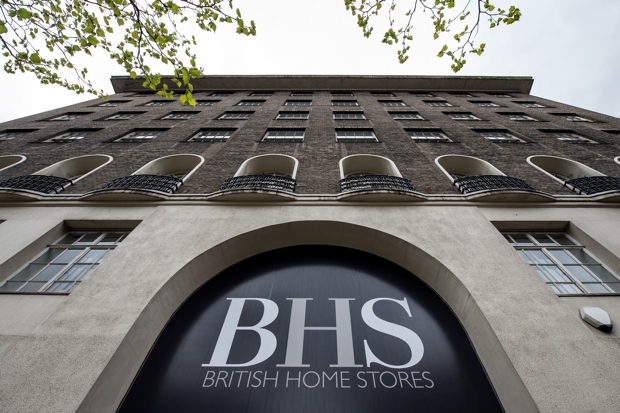Frumpy, out of date and not much fun – Gordon Brown and BHS go together in more ways than one. A word needs to be put in about the role of the former Chancellor and Prime Minister in the collapse of the chain store this week.
Dominic Chappell – who must win this year’s business brass-neck award by attempting to buy back BHS days after it collapsed into administration with him at the helm — was perhaps not the kind of entrepreneur that Gordon Brown had in mind in 2001 when he published a white paper, Enterprise for All, which led to the 2002 Enterprise Act. But intentionally or not, he was one who benefitted from Brown’s attempts to de-stigmatise bankruptcy. Brown’s argument was that insolvency laws were holding back risk-takers. At the time, bankruptcy tended to last between two and three years. Brown reduced that to 12 months and made it easier in other ways for former bankrupts to obtain credit. Suffer a business failure and you could be up and running again after just a year.
Within two years of the Enterprise Act coming into force in April 2004 personal bankruptcies nearly doubled – and that was before the crash. Moreover, it soon became clear that a lot of them had nothing to do with enterprise at all. A study by Kingston University revealed that only 16 per cent had anything to do with business. The vast majority were consumers who had got into trouble with their credit cards or wide-eyed home-improvers who had under-estimated the costs of doing up a mortgaged property.
Dominic Chappell was one of the early beneficiaries of the Enterprise Act. In December 2005 he was bankrupted after failing to pay a fee to Foxtons relating to the sale of a property in Fulham. A year later he was released from bankruptcy and free immediately to pursue a business venture developing a harbour on the Isle of Wight with his father. His creditors may have wished he had had had to wait a bit longer. They ended up collectively losing millions when the project imploded. Chappell was bankrupted again in 2009 – only to be released a year later and free to reinvent himself as a retail tycoon. That led to him buying BHS for a pound from Sir Philip Green and to what many might regard as the inevitable outcome this week.
Few would want to go back to Dickens’ days when bankrupts – including the novelist’s own father – were sent to debtors’ jails. But surveying the wreckage of BHS it is easy to wonder whether it might not be better if there were a little more stigma attached to bankruptcy, and a few more restrictions on the financial freedoms of former bankrupts. Brown didn’t just destigmatise bankruptcy – for a certain breed of shameless chancer he turned risky business deals into a one-way bet. If they win, they win. If they lose, instead of being kicked out of the casino they are invited back to the roulette wheel to have another go.







Comments